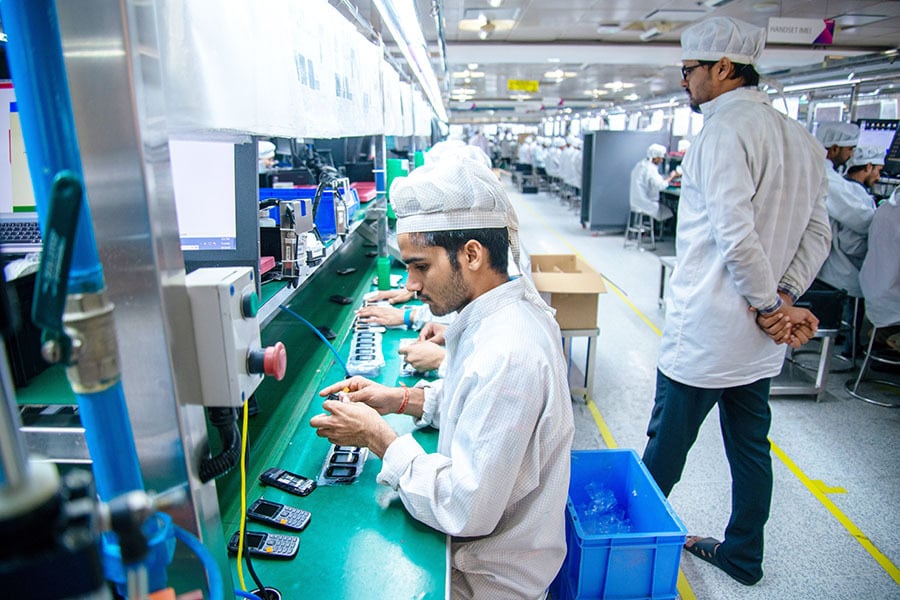
Budget 2024: Govt to facilitate development of industrial parks, dormitories near manufacturing clusters
From loans for MSMEs to reduced customs duties on mobile phones, here are all the manufacturing incentives highlighted by Finance Minister Nirmala Sitharaman in her Union Budget 2024 speech
 A mobile manufacturing company plant in Noida, Uttar Pradesh, India. Image: Shutterstock
A mobile manufacturing company plant in Noida, Uttar Pradesh, India. Image: Shutterstock
Finance Minister Nirmala Sitharaman highlighted Manufacturing & Services as one of the nine key priorities in her Union Budget 2024 speech earlier today. Sitharaman unveiled several incentives aimed at bolstering India’s manufacturing sector.
During her speech she said: “Our government will facilitate development of investment-ready ‘plug and play’ industrial parks with complete infrastructure in or near 100 cities, in partnership with the states and private sector, by better using town planning schemes.” Twelve industrial parks under the National Industrial Corridor Development Programme will also be sanctioned. The work for many such parks is in the works in Uttar Pradesh and Tamil Nadu, among others. These industrial parks are expected to increase employment for manufacturing.
Additionally, the finance minister stated that rental housing with dormitory type accommodation for industrial workers will be facilitated in public-private partnership (PPP) mode with viability gap funding (VGF) support and commitment from anchor industries.
“The creation of industrial parks in 100 new cities along with the establishment of dormitories and women’s hostels will ensure that companies have access to the right talent, while also enhancing women’s participation in the workforce,” says Viswanath PS, MD & CEO, Randstad India.
For the workforce to get better on-the-job experience, the government will launch a comprehensive package to provide internship opportunities in 500 top companies to 1 crore youth in five years. She stated that: “They will gain exposure for 12 months to real-life business environment, varied professions and employment opportunities. An internship allowance of Rs 5,000 per month along with a one-time assistance of Rs 6,000 will be provided.” Companies are expected to bear the training cost and 10 percent of the internship cost from their CSR funds.


















